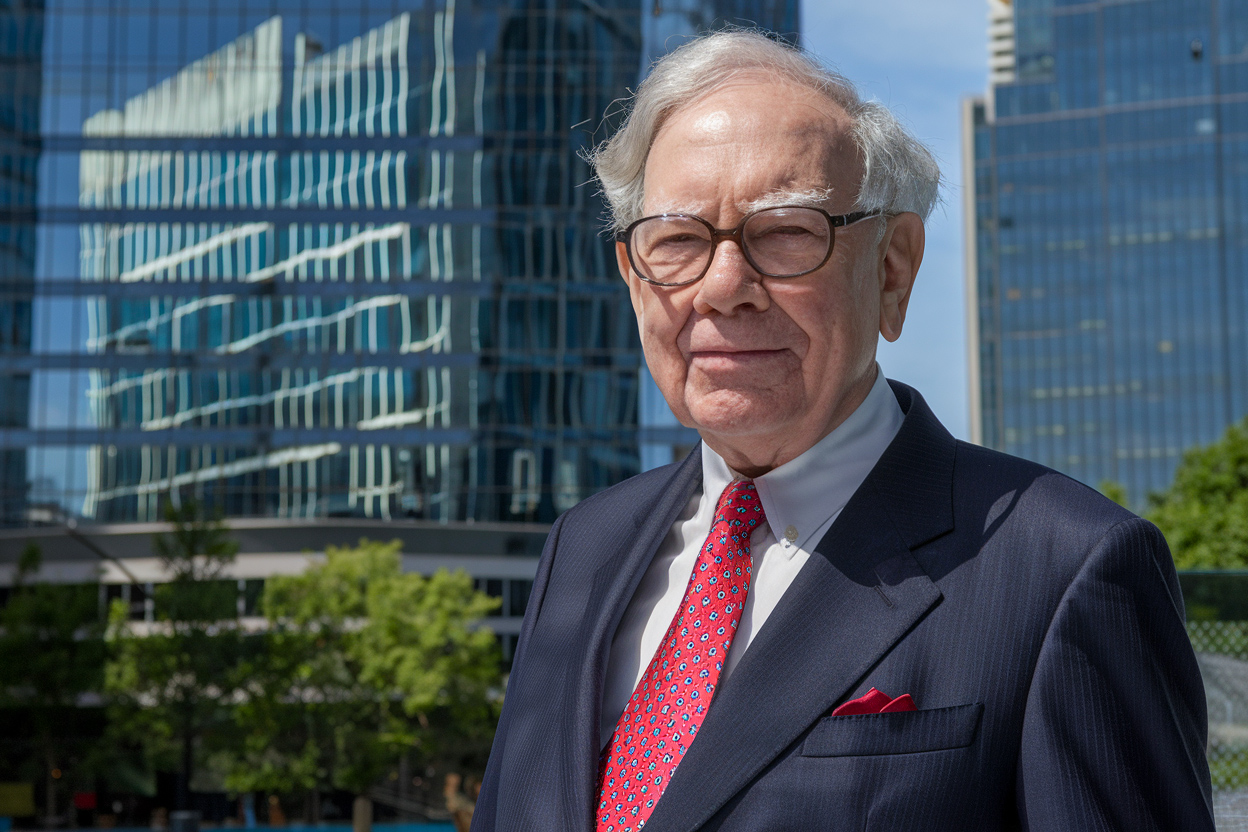Warren Buffett, the “Oracle of Omaha,” is renowned for his financial wisdom and frugal lifestyle. Despite his immense wealth, Buffett’s approach to personal money management offers valuable lessons for people across all income levels.
This article explores five common financial pitfalls that, according to Buffett’s teachings, poor people often fall into due to a lack of financial education.
Here are five things broke people tend to waste money on due to financial literacy, according to Warren Buffett’s teachings:
1. High-Interest Debt
One of the most significant financial mistakes people make is accumulating high-interest debt, particularly credit card debt. Buffett once stated, “If I borrowed money at 18% or 20%, I’d be broke”. This powerful statement underscores the devastating impact of high-interest debt on your financial health.
With their exorbitant interest rates, credit cards can quickly trap individuals in a cycle of debt. Buffett advises against using credit cards whenever possible, preferring cash instead. He understands that the compounding effect of high interest rates can rapidly erode wealth and financial stability.
Buffett’s advice is clear for those already in debt: prioritize paying off high-interest debt as quickly as possible. He even suggests using windfall or extra cash to eliminate this burden before considering investments.
Warren Buffett believes in using the power of compounding gains in your favor with investment portfolios. He thinks allowing the power of compounding interest to work against you with high-interest debt is one of the worst things you can do in your personal finances.
2. Depreciating Assets
Buffett’s frugal lifestyle extends to his approach to purchasing depreciating assets, particularly vehicles. He famously drove a 2006 Cadillac DTS until 2014, showcasing his aversion to spending on rapidly depreciating assets. His daughter made him upgrade his car even though he had no interest in a new one.
Poor financial literacy often leads people to buy new cars, which lose a significant portion of their value as soon as they’re driven off the lot. Buffett suggests using vehicles or keeping cars longer to maximize their value. His philosophy is rooted in the understanding that a car is a means of transportation, not an investment. Warren Buffett’s car is an excellent example of how he lives the lifestyle he preaches even as a billionaire.
This principle extends beyond cars to other consumer goods. Buffett advises against purchasing luxury items or brand-name products simply for status. Instead, he encourages thoughtful, value-based purchasing decisions prioritizing long-term financial goals over short-term gratification.
3. Lottery Tickets and Gambling
Buffett has consistently criticized gambling and lottery tickets as a “tax on people who don’t understand mathematics.” While he takes calculated risks in business, he views gambling as a misunderstanding of probability and a symptom of hoping for instant wealth rather than building it systematically through saving and investing.
The allure of quick riches often tempts those with limited financial education. However, Buffett emphasizes the importance of understanding odds and probability. He believes that money spent on gambling could be better invested in assets that are more likely to generate returns over time.
Buffett’s approach to wealth-building is rooted in patience and discipline. He famously said, “Someone’s sitting in the shade today because someone planted a tree a long time ago.” This metaphor illustrates the power of long-term investing and the folly of seeking instant financial gratification through gambling or the lottery.
4. Impulse Purchases
One of Buffett’s most poignant quotes addresses the danger of impulsive spending: “If you buy things you do not need, soon you will have to sell things you need.” This wisdom highlights the importance of distinguishing between wants and needs in financial decision-making.
Poor financial education often results in prioritizing short-term desires over long-term financial stability. Buffett advocates for living below your means and making thoughtful purchasing decisions. He believes that true financial freedom comes from controlling spending impulses and focusing on acquiring assets that generate value over time.
Buffett’s lifestyle exemplifies this principle. Despite his immense wealth, Warren Buffett lives in the house he bought in 1958 for $31,500. This frugality isn’t about deprivation but conscious choices that align with long-term financial goals.
5. Investment Products They Don’t Understand
Buffett has consistently warned against investing in complex financial products or following trendy investment advice without proper understanding. His famous quote, “Never invest in a business you cannot understand,” applies equally to financial products and investment strategies.
Due to a lack of financial education, many people fall prey to high-fee investment products, complex derivatives, cryptocurrency losses, or trending investments simply because others are buying them. Buffett advocates for simple, straightforward investments that investors can fully comprehend.
This principle ties into Buffett’s preference for long-term investing over short-term trading if no edge exists. He once said, “Our favorite holding period is forever.” This approach encourages investors to focus on the fundamental value of their investments rather than being swayed by market fluctuations or short-term moves.
Conclusion
The common thread in Buffett’s teachings is that financial education could help people avoid these pitfalls. He emphasizes that these aren’t just spending issues but symptoms of not understanding basic economic concepts like compound interest, the time value of money, and the difference between assets and liabilities.
Buffett’s wisdom suggests that developing good financial habits early and maintaining them consistently is crucial, regardless of income level. Individuals can build a stronger financial foundation by avoiding high-interest debt, being mindful of depreciating assets, steering clear of gambling, controlling impulse purchases, and investing in understandable investment products,
Buffett’s approach to personal finance is about making informed, rational decisions that prioritize long-term financial health over short-term gratification. By embracing these principles and investing in financial education, even those with limited means can work towards building lasting wealth and economic security.
